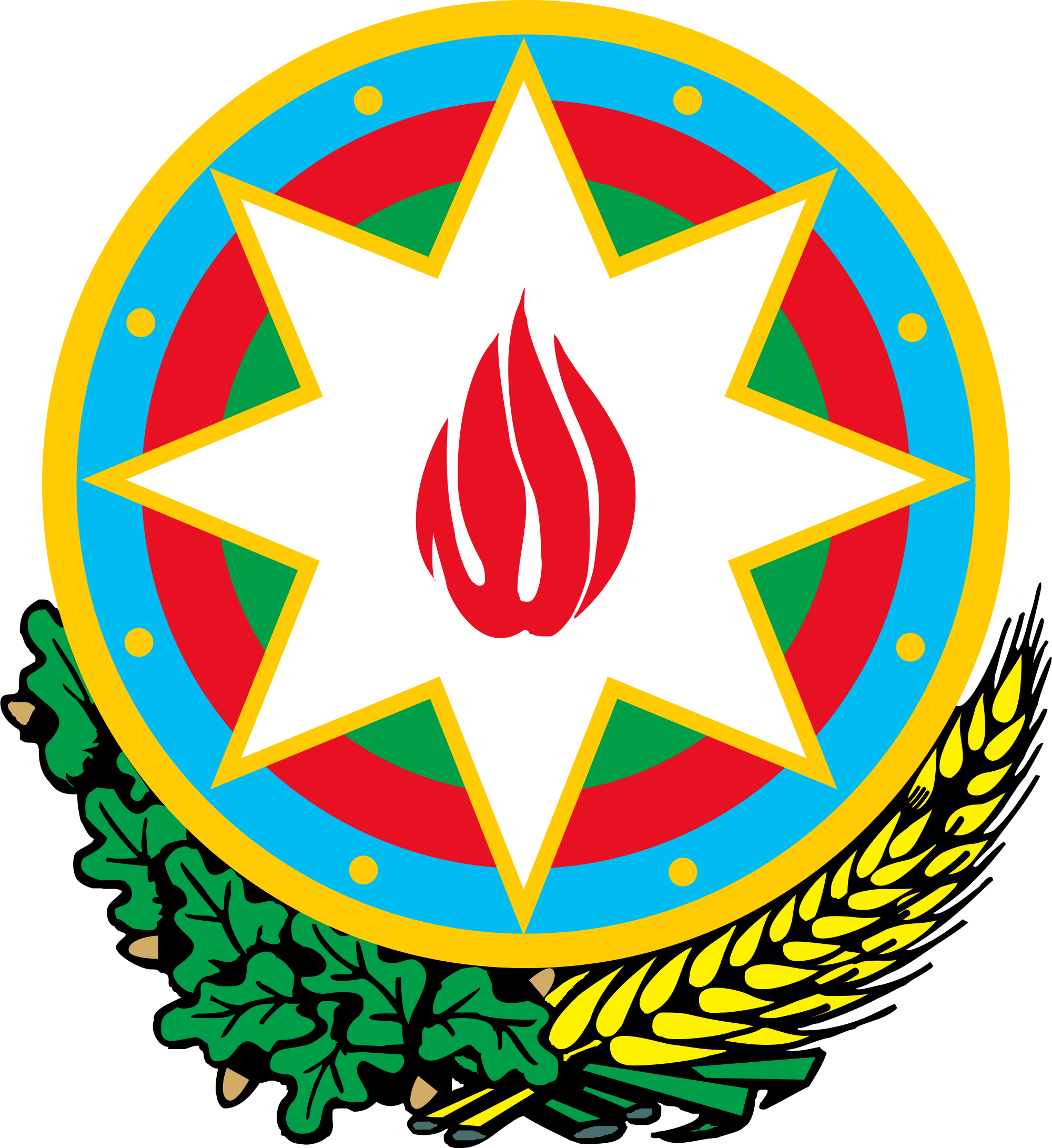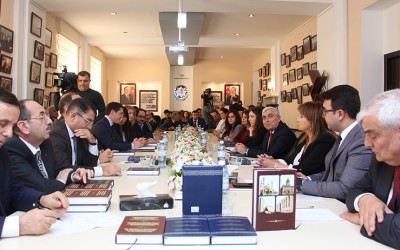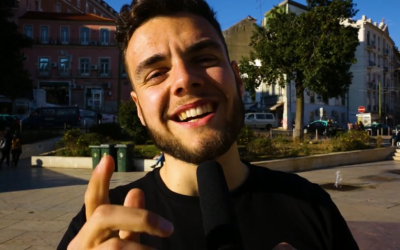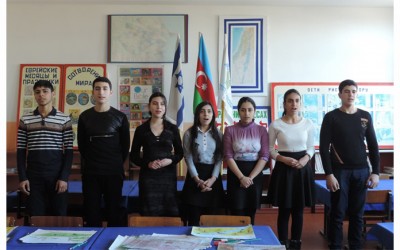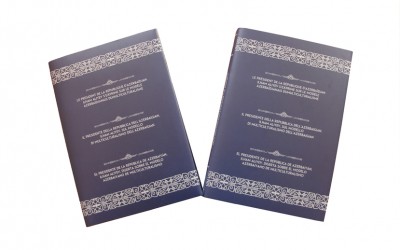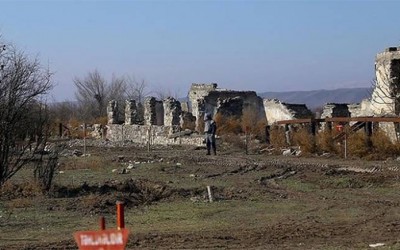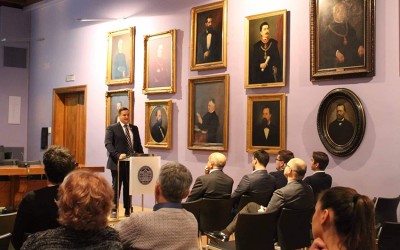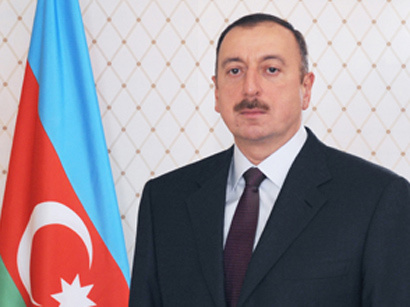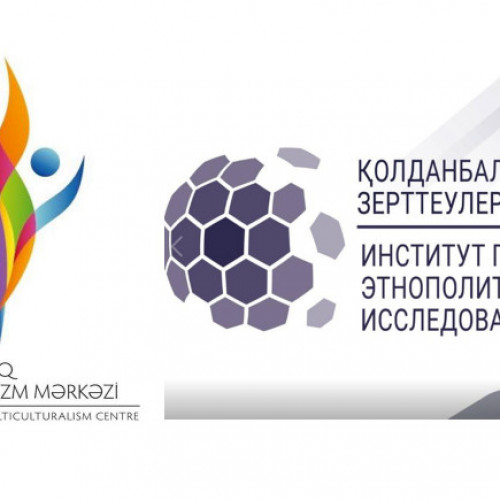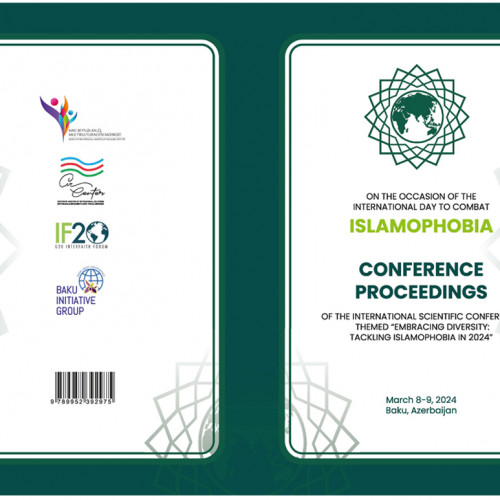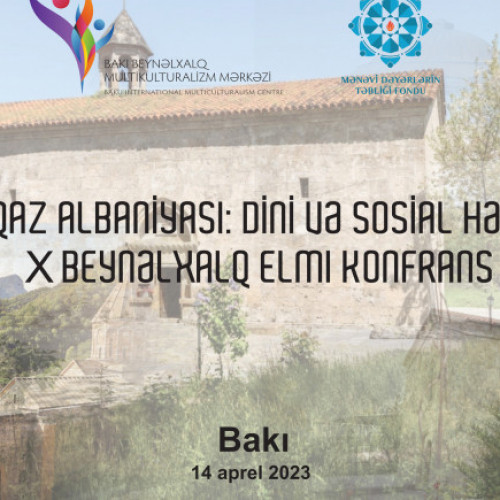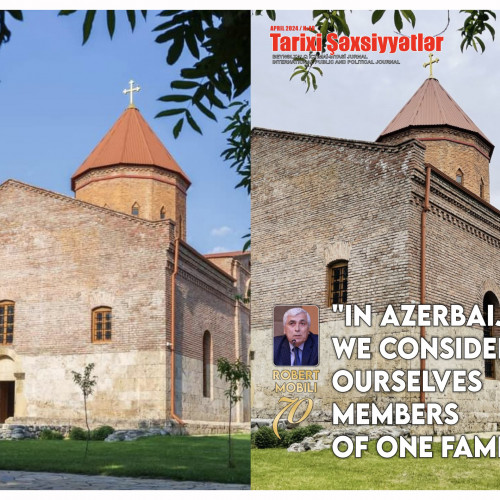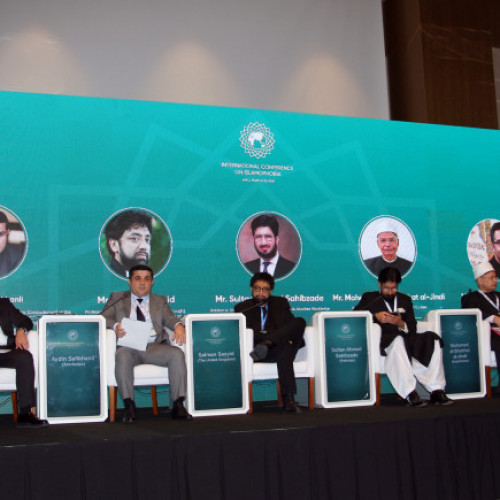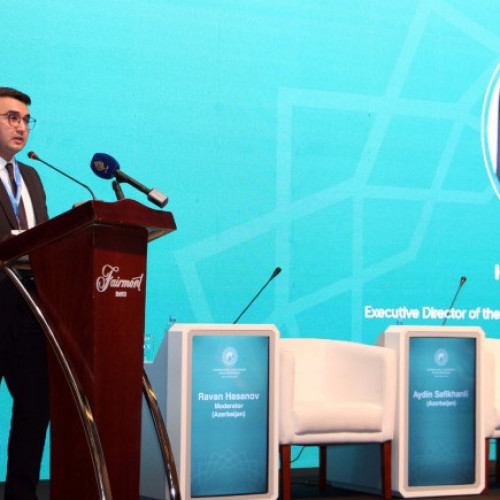Azerbaijani multiculturalism to be taught in Morocco
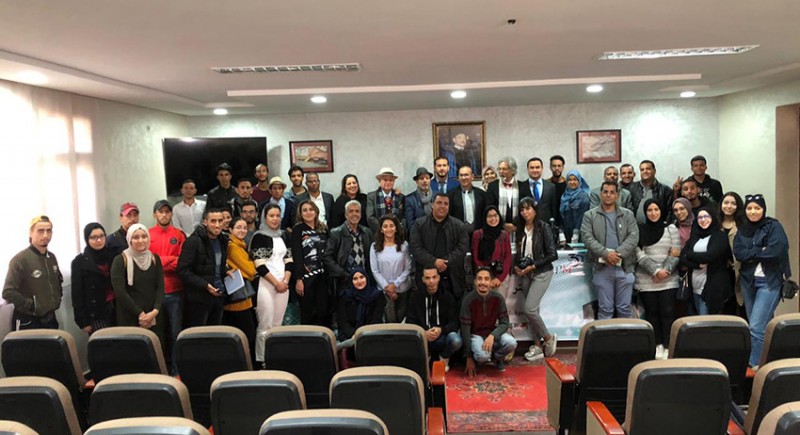
Anar Rahimov, a senior teacher of the Innovations in Education department of Azerbaijan University of Languages and deputy dean of the faculty of Additional Education and Practice, has given lectures in prestigious state universities of the Kingdom of Morocco with the organizational support of Baku International Multiculturalism Center. Mr. Rahimov shared his impressions of the visit in an interview with the website of multikulturalizm.gov.az:
- Mr. Rahimov, how did the idea for your Morocco visit come about?
- Our university has close ties with foreign universities, which allow us to carry out cooperation programs such as student/teacher exchanges, organization of joint conferences, and mutual visits. I was invited to an international conference on “Ethnic and linguistic diversity in the modern world” hosted by the Ibn-Zohr University of Morocco through an official letter. They were asking if I could give lectures on the topics of Azerbaijani multiculturalism and linguistic, religious and ethnic diversity in our country. I surely agreed. Next, other organizational issues were resolved and a successful visit program materialized.
- What kind of events were held as part of the visit? Please give us more details on your visit.
- The visit lasted for six days. During this time, seminars and lectures were organized at three major universities, including the Ibn Zohr and Cadi Ayyad universities, in Rabat, Marrakech, Casablanca and Agadir cities of the Kingdom of Morocco. On the first day, I had a meeting with the management of Marrakech-based Cadi Ayyad University, the largest university of the country. At the meeting, we exchanged views on student/teacher exchanges, granting of double degrees and teaching of the “Azerbaijani multiculturalism” subject at this university. Then, I gave a lecture to postgraduate students of the university on the topic of “Azerbaijan’s multiculturalism model as an example for world countries.” You could tell from the large number of questions asked by the students that they found the lecture very interesting. We also reached a preliminary agreement with the management of the Cadi Ayyad University for the establishment of an Azerbaijani culture center at the university.
We then went to the city of Agadir to give lectures at the Ibn Zohr University, Morocco’s second largest university. There, we provided detailed information about Azerbaijan’s rich culture and the exemplary multicultural and tolerant environment in our country. For this, we extensively used the visual aids of Baku International Multiculturalism Center.
- How were the topics on Azerbaijan and the Azerbaijani multiculturalism received in Morocco?
- Both lectures and seminars were received with great interest. To tell you the truth, I did not expect such a great interest in Azerbaijan and our history, culture and language. Alongside with the postgraduate and doctoral students, the teaching staff were also enthusiastically participating, listening and asking a lot of questions at the meetings. Our Moroccan friends were particularly surprised [WU2] by the lack of a single religion, race or ethnicity-based conflict or confrontation in Azerbaijan throughout history. The conditions creating this situation and the possibility of peaceful and harmonious co-existence of different ethnic groups in our country were very interesting for them. You understand the relevance of this topic for them when you look at the historical problem with ethnic minorities in southern Morocco that still persists today.
- Mr. Rahimov, what impressions have you brought back from Morocco?
- My impressions are great and positive. The hospitality, warm and sincere attitude, and similarity in our lifestyles did not let me feel alien in this country. Morocco has a long history and is home to different ethnic groups. The country is governed by a king. The educational system, students and teaching staff at the universities based in Marrakech, Rabat and Agadir that I travelled to had some idea about Azerbaijan, but they acquired even more extensive and detailed information after our meetings. This, in turn, creates a very pleasant feeling. I believe that the visit can be considered a success both in terms of promoting the multicultural values of our country and informing our Moroccan friends of the policy implemented by Azerbaijan[WU3] .
- What similarities are there between the multicultural values of Azerbaijan and Morocco?
- Like Azerbaijan, Morocco is also situated at the crossroads of cultures and civilizations. Azerbaijan is located on the border of Europe and Asia, while Morocco is located on the border of Europe and Africa. Morocco’s geographical location, historical development path, and regular invasion by imperial forces have brought about the religious, ethnic and cultural diversity in the country. During my time in this country, I saw people speaking mainly Arabic and French. Almost all announcements and texts in public places are in French. Historically, different empires have ruled this country. The Roman empire, Spaniards, Jews and Arabs have left indelible traces on today’s multicultural Morocco. This diversity manifests in various aspects of life in Morocco. It is particularly evident in the variety of languages, clothing styles and cultures. In addition to its rich cultural components (ethnic groups), Morocco has also been exposed to the influx of migrants in the last few years. As a gate to Europe, Morocco looks very attractive and tempting to thousands of illegal migrants. Not all of these migrants are able to materialize their desire to cross into Europe. Hence, the Kingdom of Morocco is becoming a permanent home for different peoples in the recent years.
- As a result of your visit to Morocco, are any new projects planned in this area for the future?
- Of course, we have certain plans to ensure the successful continuity of this cooperation in the future. In accordance with the cooperation protocol signed between Morocco’s most prestigious Cadi Ayyad University and Azerbaijan University of Languages (AUL), Cadi Ayyad University deputy rector on international relations Ms. Fatima Zohra Iflahen visited Baku on November 26 and met with AUL’s rector, academician Kamal Abdulla. The issues discussed included student/teacher exchanges, organization of joint conferences and summer schools, issuance of joint publications, and granting of double degrees. It is also envisaged to establish an Azerbaijani culture center at one of the Moroccan universities and a Moroccan center at AUL in the near future. In addition to all this, it is planned to start teaching the subject of “Azerbaijani multiculturalism” at higher education institutions of Morocco with the organizational support of Baku International Multiculturalism Center. Realization of mutual visits early next year is also on the agenda.

